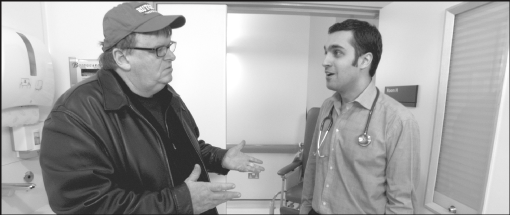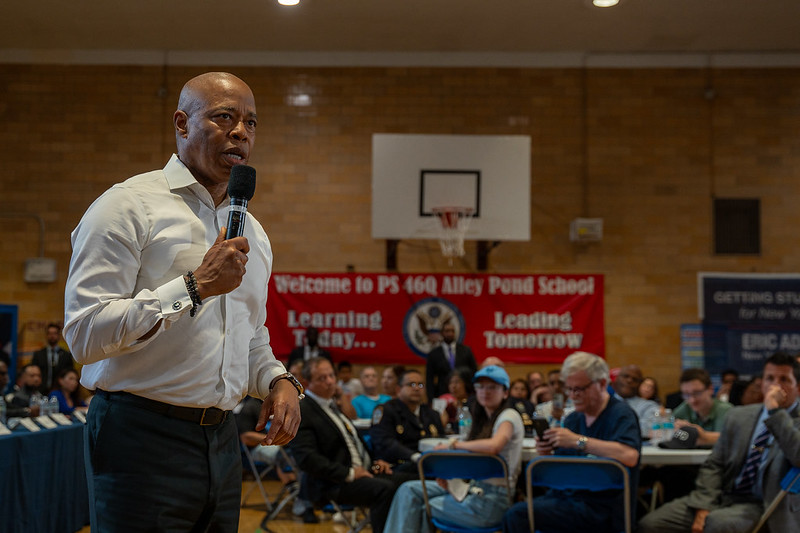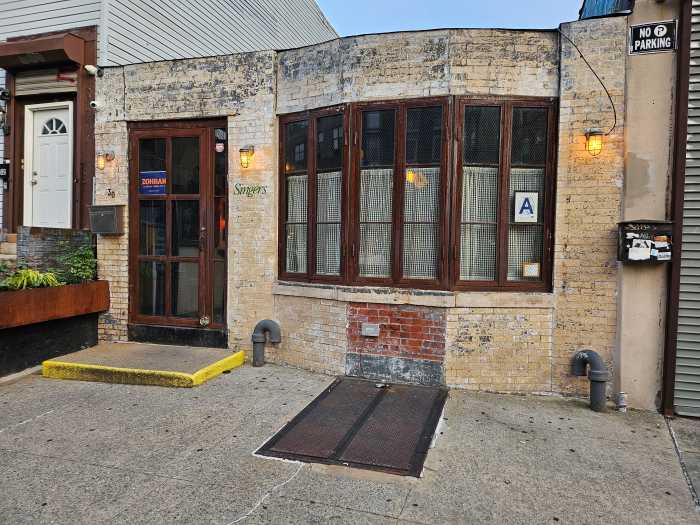By Steven Snyder
We’re getting screwed, my fellow Americans.
That seems to be the sentiment of Michael Moore in his latest provocative, funny, and all around exceptional documentary that was greeted at the Cannes Film Festival not so much with scandal as with nods of the head — even from the Fox News critic, who hailed it as a “brilliant” example of Moore’s “maturity as a filmmaker.” And it’s difficult, as a tax-paying, God-fearing, patriotic citizen not to agree with that assessment.
Something different is afoot with “Sicko,” which ranks among the year’s best films. It’s less polemical than rational, less angry than sad. It cuts across all political, ethnic and racial lines — and it’s also the first Michael Moore film that’s not looking for someone to blame.
“Sicko” peers inside our health care system, and uncovers the politicians who have been bought off by insurance companies and prescription drug firms with a vested interest to maintain control over the medical industry — and thus their profits. Quite calmly and collectively, Moore builds up to a simple thesis: That we are the last western country without universal health care. In our system, it’s the insurance companies that run the show, dictating to us which procedure is warranted, and whether or not they will pay a claim. Meanwhile, the drug companies have jacked up their prices, and the insurance companies have restructured their policies to meet those prices. It’s a royally flawed system, out of check and out of balance. When Congress recently passed a prescription reform bill, many Americans wound up paying more for the same drugs.
And those were the ones who are insured in the first place.
These are not so much claims as statements of fact, and Moore’s tone here is less attacking than a methodical, step-by-step accounting of the situation. He talks of the modern American way of life, of the way that kids now graduate from college saddled with $30,000 of debt, how they then must go out and get a job that provides benefits, and how then, in many cases, the providers of those benefits will either not pay for a medical claim, or will require a lengthy bit of deliberation before that person can receive the appropriate treatment.
Moore appears in this film, but not until later on — the remainder of the time, it’s merely him talking to American citizens about their horror stories. He hears about people who were denied treatment, who are now mourning lost loved ones who had a possibility at life, if only their insurance provider hadn’t obstructed them.
Then, Moore travels abroad. He goes to Canada, to Britain, to France, to Cuba (in a controversial stunt, with 9/11 first responders who are unable to attain treatment that costs tens of thousands of dollars in America), and shows how the concept of payment, of authorizations, of “in-network” hospitals, are all incomprehensible to the rest of the civilized world. More importantly, he documents the overall quality of life in these places, from prescription drugs to preventative medicine, to weeks of medical leave and vacation with no questions asked.
Forget an inconvenient truth — “Sicko” is a recording of the obvious lie that the system we have here in America is not working as well as the system happening north of the border, or just over the pond. The difference between us, Moore says, is that America is a “me” culture, while in the countries he visits, it’s a “we” culture, with the expectations that certain things — like police, garbage removal, and medical care — must be provided to the populace by the government. It’s a moral and ethical imperative.
This isn’t a film about left vs. right, politics or agendas; it’s about sick people not getting the care they need. Moore has successfully gotten out of the way of this story, and allowed it to come through loud and clear. He doesn’t state a claim, he just allows a question to come to the fore: Is this the best we can do?
It’s a question that deserves more debate, which “Sicko” is sure to fuel.






































